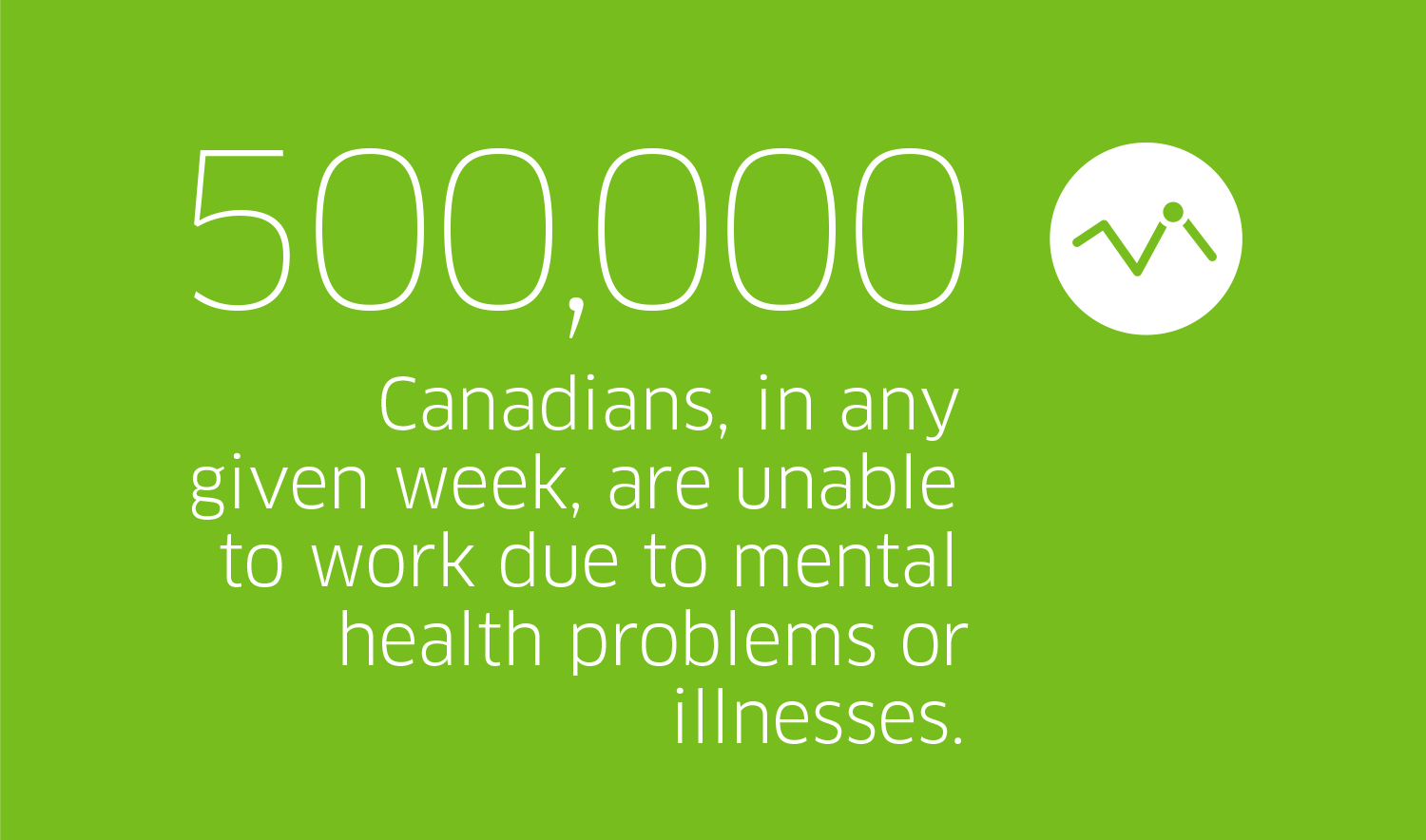Youth Mental Health In Canada: Recommendations From A Global Commission

Table of Contents
Prevalence and Impact of Youth Mental Health Challenges in Canada
Statistics on Anxiety, Depression, and Suicide
Alarming statistics paint a concerning picture of youth mental health in Canada. Data from the Canadian Mental Health Association (CMHA) and Statistics Canada reveals a significant rise in anxiety, depression, and suicidal ideation among young Canadians. The youth mental health statistics Canada show a concerning trend, particularly amongst certain demographics.
- Age Groups Most Affected: Young adults aged 15-24 demonstrate the highest rates of mental health challenges, with significant increases observed in recent years.
- Regional Disparities: Access to mental health services and prevalence rates vary significantly across different regions of Canada, with rural and remote communities often facing greater challenges.
- Contributing Factors: Several factors contribute to this crisis, including increased academic pressure, social media's impact on self-esteem and body image, and societal changes impacting youth well-being. The pervasive nature of the teen mental health crisis demands immediate action. Reports indicate a concerning rise in Canadian youth suicide rates, highlighting the urgency of addressing this issue.
The Socioeconomic Impact
Untreated mental health issues in youth have far-reaching socioeconomic consequences. The youth mental health economic impact is substantial and affects individuals, families, and society as a whole.
- Lost Productivity: Mental health challenges can significantly impact educational attainment and future employment prospects, leading to lost productivity and reduced economic contributions.
- Healthcare Costs: The cost of treating mental illness is significant, placing a strain on healthcare systems. The cost of mental illness Canada is a considerable burden that requires proactive intervention strategies.
- Increased Risk of Substance Abuse: Untreated mental health conditions often lead to increased risks of substance abuse, further compounding the challenges and costs.
- Impact on Family Dynamics: Mental health struggles in youth can strain family relationships and create significant emotional and financial burdens for families. Understanding the social determinants of mental health is crucial to tackling this complex issue.
Recommendations from the Global Commission for Improving Youth Mental Health in Canada
Early Intervention and Prevention Strategies
Proactive measures are crucial in addressing youth mental health challenges. Early identification and intervention are key to preventing escalation and long-term consequences. Investing in youth mental health prevention programs is a vital step.
- School-Based Mental Health Programs: Implementing comprehensive mental health programs in schools can provide early detection and support for students.
- Community Outreach Initiatives: Community-based programs can reach youth in various settings, offering accessible and culturally sensitive support.
- Promoting Mental Health Literacy: Educating youth and parents about mental health awareness, early warning signs, and available resources is crucial. Access to early intervention mental health Canada services is paramount.
- Access to Early Intervention Services: Ensuring timely access to effective early intervention services is vital in preventing the escalation of mental health problems. Improved access to school mental health services is vital.
Improved Access to Mental Healthcare Services
Significant barriers hinder access to timely and appropriate mental healthcare for Canadian youth.
- Reduced Wait Times: Reducing wait times for therapy and medication is paramount. Addressing access to mental healthcare Canada is crucial for better outcomes.
- Increased Funding: Increased government funding for mental health services is necessary to expand capacity and improve accessibility.
- Expanding Telehealth Options: Utilizing telehealth technologies can improve access for youth in rural and remote areas, addressing the limitations of youth mental health services Canada.
- Culturally Sensitive Care: Providing culturally sensitive care that respects diversity and addresses the unique needs of different communities is critical. Improving mental health funding Canada will enable greater access to diverse services.
Strengthening the Support System for Youth and Families
A strong support system plays a vital role in fostering youth mental well-being.
- Parent Training Programs: Equipping parents with the knowledge and skills to support their children's mental health is vital.
- Teacher Training: Training educators to recognize and respond to mental health concerns in students is essential.
- Community Support Groups: Community-based support groups can provide a safe and supportive environment for youth and their families.
- Peer Support Networks: Peer support networks can provide valuable emotional support and reduce feelings of isolation. Strengthening family support mental health and school support for mental health is crucial. Accessible community mental health support is also vital.
Addressing Systemic Issues Affecting Youth Mental Health in Canada
Reducing Stigma
Reducing the stigma surrounding mental health is crucial for encouraging help-seeking behavior among youth.
- Public Awareness Campaigns: Raising awareness through targeted campaigns can help to dispel myths and misconceptions.
- Educational Initiatives: Integrating mental health education into school curricula can help to normalize conversations about mental well-being.
- Challenging Negative Stereotypes: Actively challenging negative stereotypes and promoting positive representations of mental health is essential. Initiatives to combat stigma reduction mental health are critical to progress. Improved mental health awareness Canada will lead to more individuals seeking help. Addressing youth mental health stigma is paramount.
Addressing Systemic Inequalities
Systemic inequalities significantly impact access to mental healthcare for marginalized groups.
- Equitable Resource Allocation: Ensuring equitable distribution of resources to address disparities in access to care is crucial.
- Culturally Appropriate Services: Providing culturally appropriate services that are sensitive to the needs of diverse communities is essential. Addressing equity in mental health Canada and mental health disparities Canada is vital.
- Addressing Systemic Barriers: Identifying and addressing systemic barriers to care, such as transportation limitations or language barriers, is essential. Special attention must be paid to Indigenous youth mental health.
Conclusion
The mental health of Canadian youth is a pressing issue requiring immediate and comprehensive action. The recommendations from this global commission highlight the need for a multi-faceted approach encompassing early intervention, improved access to care, stronger support systems, and a concerted effort to reduce stigma and address systemic inequalities. By investing in youth mental health in Canada and implementing these crucial recommendations, we can create a brighter and healthier future for young Canadians. Let's prioritize youth mental health initiatives and build a more supportive and inclusive society. Let's work together to improve youth mental health in Canada for future generations.

Featured Posts
-
 Wednesday Lotto Draw Results April 9th Winning Numbers
May 02, 2025
Wednesday Lotto Draw Results April 9th Winning Numbers
May 02, 2025 -
 School Desegregation Order Ended The Future Of Equal Education
May 02, 2025
School Desegregation Order Ended The Future Of Equal Education
May 02, 2025 -
 Canadian Dollar Rises After Trumps Comments On Carney Deal
May 02, 2025
Canadian Dollar Rises After Trumps Comments On Carney Deal
May 02, 2025 -
 Canadian Products At Loblaw A Ceos Perspective On The Future
May 02, 2025
Canadian Products At Loblaw A Ceos Perspective On The Future
May 02, 2025 -
 Kogi Train Breakdown Leaves Passengers Stranded
May 02, 2025
Kogi Train Breakdown Leaves Passengers Stranded
May 02, 2025
Latest Posts
-
 Un Violon A L Ecran La Matinale Avec Mathieu Spinosi
May 03, 2025
Un Violon A L Ecran La Matinale Avec Mathieu Spinosi
May 03, 2025 -
 The Future Of Reform Uk Five Reasons For Concern
May 03, 2025
The Future Of Reform Uk Five Reasons For Concern
May 03, 2025 -
 The Tory Chairman Vs Reform Uk The Fight Against Populism
May 03, 2025
The Tory Chairman Vs Reform Uk The Fight Against Populism
May 03, 2025 -
 Emission Matinale Mathieu Spinosi Joue Du Violon
May 03, 2025
Emission Matinale Mathieu Spinosi Joue Du Violon
May 03, 2025 -
 Reform Uks Struggle For Relevance Five Key Challenges
May 03, 2025
Reform Uks Struggle For Relevance Five Key Challenges
May 03, 2025
